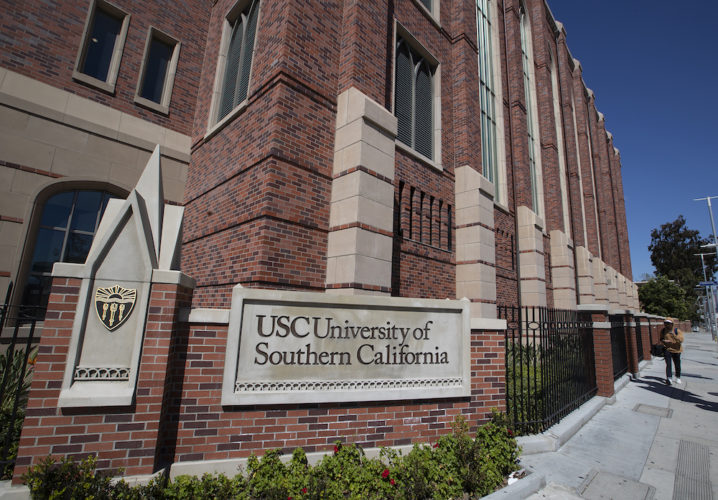 Tribune News Service
Tribune News Service As someone who works in admissions, the scandalous events of the last few weeks just don’t feel real, said Jacqueline Palko, director of Admissions. Especially since there are celebrities involved — it’s like we’re all watching a movie, she said.
“It didn’t really feel like it was a real thing, that people actually do,” she said.
In the last two weeks, scores of admissions counselors and athletic coaches at some of the nation’s most prestigious universities have been implicated in accepting massive bribes from parents determined to ensure their children’s acceptance. Some of the institutions involved include Yale University, University of Southern California, Stanford and Georgetown. Some of the parents — Full House’s Lori Laughlin and Desperate Housewives’ Felicity Huffman.
The scandal has raised many questions in national media — of the role of money in receiving an elite education, the showing of selectivity in college decisions and the presence of corruption in the higher education machine. At Waynesburg University, admissions counselors and athletic coaches are reflecting on what the scandal means for the state of their field.
For Palko, the scandal highlights the importance of professional ethics among admissions counselors, and agencies like the National Association for College Admissions Counseling that ensure institutions are “respectful to each other and are respectful to families who are making college decisions.”
“Obviously, this is not being respectful to families, the people who earned admission,” Palko said. “They were essentially able to buy a spot when everyone else had to earn their spot.”
Palko said when it comes to making the pivotal decision of where to attend college, it can be easy for students and their families to get swept away, unable to take “no” for an answer.
The selectivity of the big-name institutions involved in the scandal led to drastic measures being taken.
“I do think that people can have blinders on with those types of selective institutions, in feeling that’s like the ‘end-all, be-all’ in their college decision,” Palko said. “I think it’s OK for people to hear ‘no,’ and for people to think that their child should never hear, ‘no,’ that’s the problem…that’s just not how the world works.”
On the athletic side, many coaches accepted bribes for allowing non-athletes on their roster–students who were not competing, or had never competed, but were accepted based off their non-existent athletic ability.
“That’s frustrating, and I’m sure it happens in more cases than you’d like to see,” said Dr. Randy Petit, assistant athletic director.
Petit said while nothing like this has ever happened at Waynesburg, he predicts long-term effects for the National Collegiate Athletic Association, the governing body of college sports.
“Something like this is probably going to put a bit of a black eye on some of the institutions,” he said. “I think there will also be a little bit of a trickle-down to the NCAA as a whole.”
While each coach at Waynesburg approaches recruiting a little differently, Petit said they are always bound by NCAA restrictions.
At a convention in January, some of the communication restrictions were lifted, but coaches can’t do much until after May 1. Waynesburg takes compliance to these guidelines seriously, Petit said.
Head men’s basketball coach, Mark Christner is in charge of staying up to date on NCAA guidelines and legislation, educating coaches on anything new that comes up.
“We try to make sure we are handling things across the board in a fashion that is not only going to represent the school, but also the coach, the program and their team,” said Petit.
Unfortunately, Petit said, there are probably even more cases that lawmakers haven’t uncovered yet–more corruption, briberies and unfair admissions. But for something as significant as higher education, which influences economics, social standing and more, it is important that students are given a fair chance.
“They’re getting into a school that maybe they shouldn’t have in the first place,” Petit said. “The part that’s frustrating is now that particular person may have taken the spot of somebody who deservedly should’ve been there, but maybe don’t have the funds to do such a thing.”
